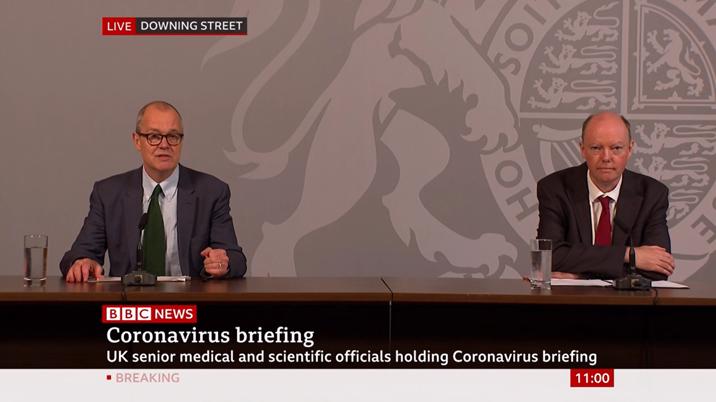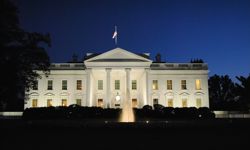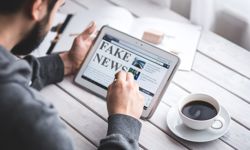
The Society’s intervention comes after criticism yesterday that a widely-publicised Covid-19 briefing by the government’s Chief Medical Officer Chris Whitty and Chief Scientific Advisor Sir Patrick Vallance yesterday morning did not permit follow-up questions from the press.
Ian Murray, Executive Director of the Society of Editors said: “The Society is deeply concerned that today journalists were not allowed to follow-up Professor Whitty and Sir Patrick Vallance’s briefing with questions.
“Throughout the entirety of the pandemic, the government has stressed its policy of “following the science” and it is only right that journalists, on behalf of the public, are permitted to question that science and the scientists that are helping to lead the government’s response.
“Moving forward it is essential that in all government briefings – whether it be by the Prime Minister, his ministers or the government’s top scientific advisors – journalists are allowed to question both the government’s policy and what advice it is based upon on a matter of immense public interest.”
The briefing by Whitty and Vallance saw them deliver a televised presentation on the latest coronavirus data and set out “potential scenarios” for the months ahead. According to data outlined by the pair, modelling suggests that if the virus’s current contagion trajectory continues, the UK will hit almost 50,000 new cases a day in by mid-October. There is “no evidence” to suggest Covid is milder now than it was in March, Whitty confirmed, and measures were needed over the next six months to further tackle a rise in infections.
The decision by the government not to allow questions of Whitty and Vallance was also criticised by a number of journalists, reports the SoE’s Claire Meadows.
Writing on Twitter, Pippa Crerar, Daily Mirror Political Editor and Parliamentary Press Gallery chair said that it was essential that the government’s policy was open to scrutiny.
She said: “With my press gallery chair hat on, it’s very poor form that the Chief Medical Officer and Chief Scientific Advisor aren’t taking press questions on their presentation today. Transparency and accountability matter.”
The decision to not permit questions was also criticised by Jane Merrick, Policy Editor at the i newspaper.
She said: “Disappointing that Chris Whitty and Patrick Vallance aren’t taking questions after their briefing today. This should be a moment of maximum transparency and scrutiny.
“To the many people likely to do that same line about “gotcha” questions – which is by the way an unfair way to characterise how we’ve covered this briefings – they could get science and health correspondents to ask questions instead.”
James Forsyth, Political Editor of The Spectator also criticised the move not to answer journalists to question the data.
He said: “Whitty and Vallance should have taken questions from health and science correspondents. Obviously it is not their job to make the policy, but they should have answered questions about the evidence that they presented which is informing the government’s decisions.”
The Society of Editors has previously criticised the government’s ‘concerning’ refusal to answer questions from journalists. In May 2020, the SoE wrote to No10 following a refusal to answer questions from The Guardian and Mirror newspapers concerning Dominic Cummings’ movements during the Covid-19 lockdown measures. At the time it was reported that Downing Street had refused to answer questions on the basis that it did not wish to “waste our time answering a stream of false allegations about Mr Cummings from campaigning newspapers.”












